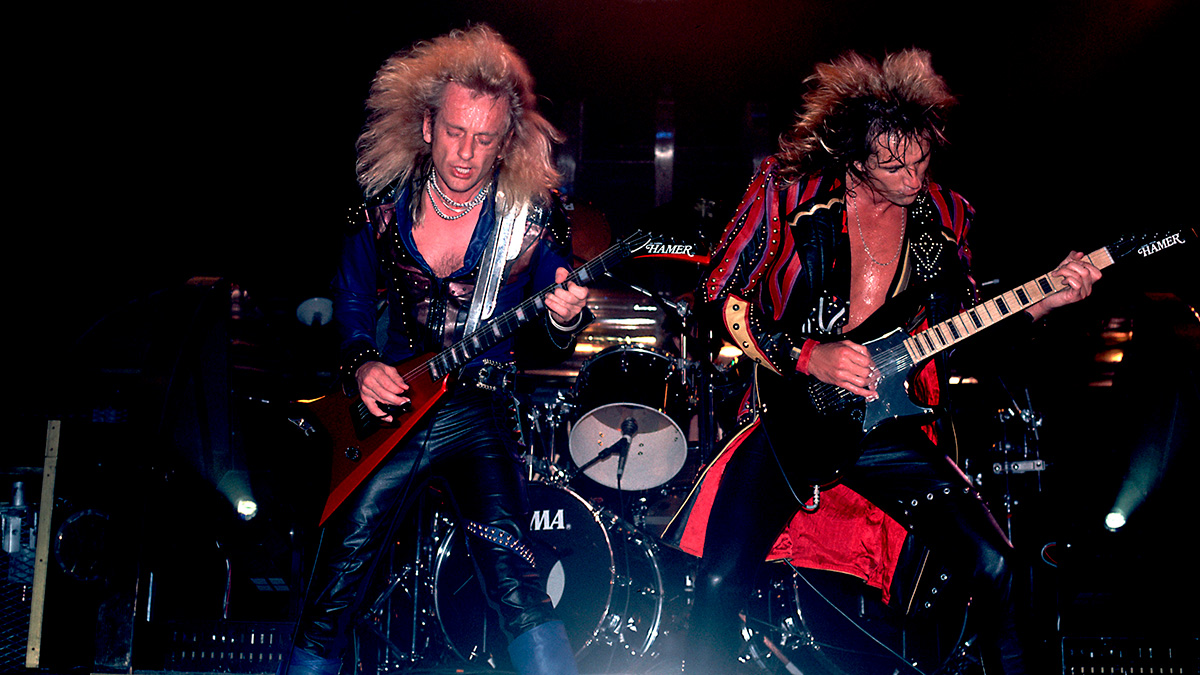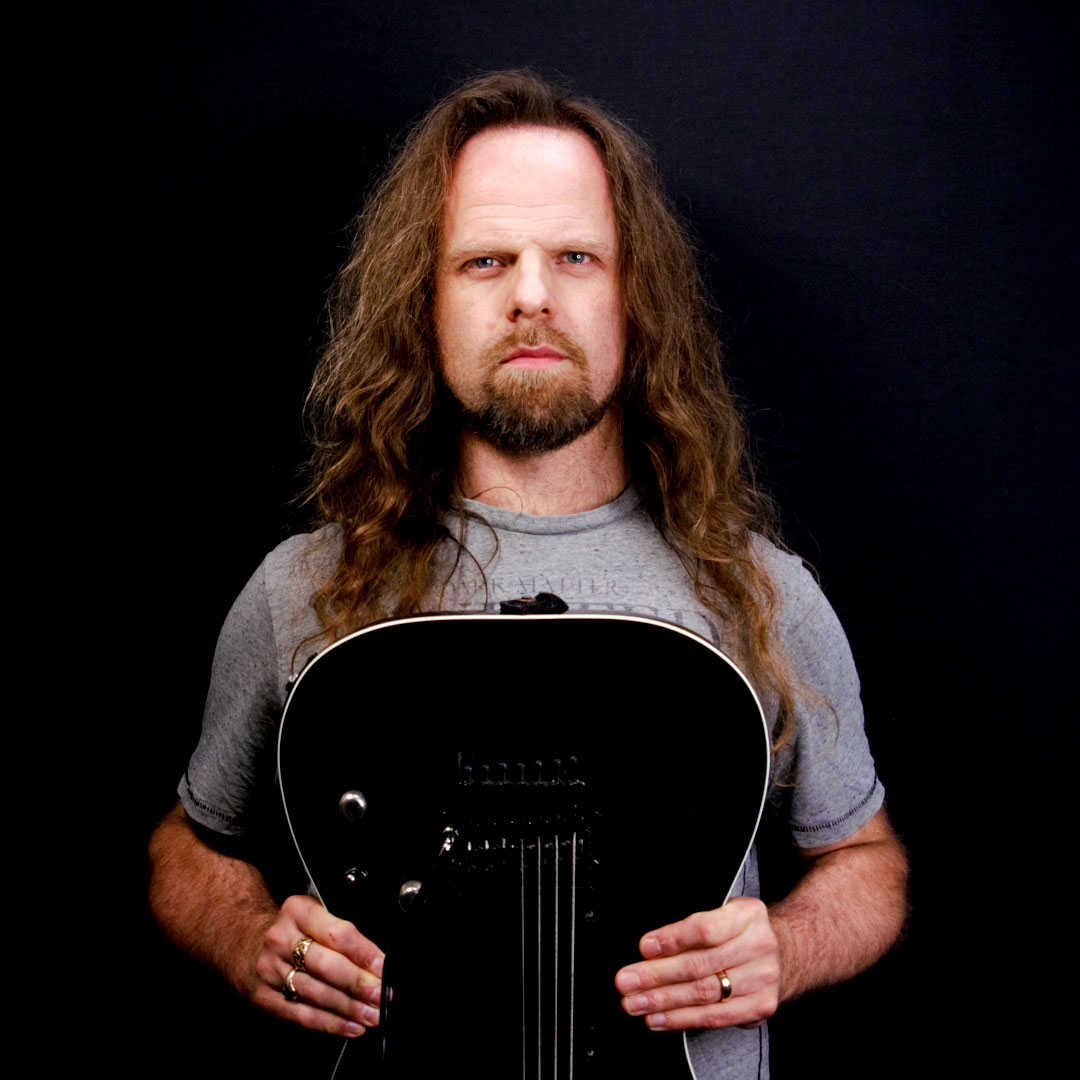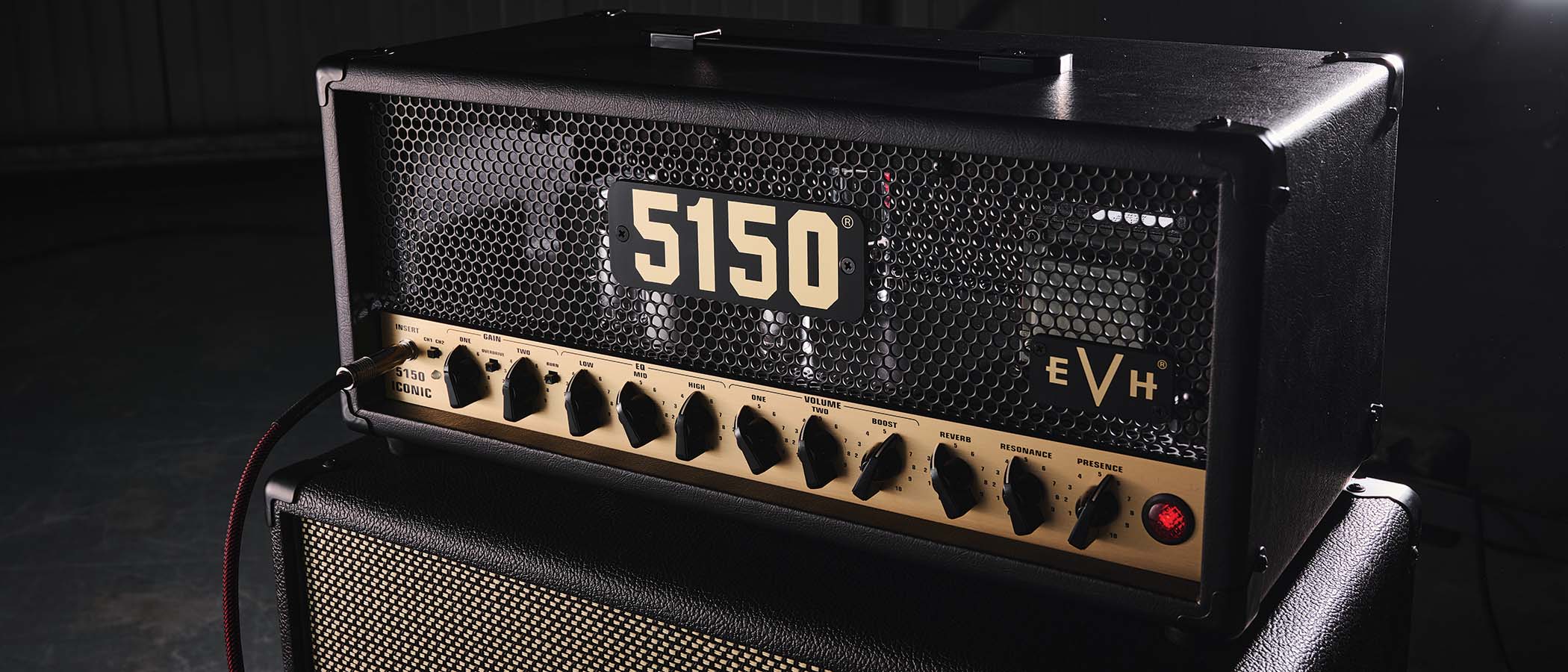K.K. Downing and Glenn Tipton brought British steel to the world with Judas Priest – learn the secrets behind the metal gods’ seminal rhythm style
Fall to your knees and repent if you please, it’s time to dial it back to Priest’s glory days with a lesson that’ll whip your eighth and 16th-note rhythm playing into shape

Since their first release, Rocka Rolla in 1974, Judas Priest have played a pivotal role in the establishment and evolution of heavy metal.
Despite more recent changes within the guitar line-up, the core of Priest’s sound is due to the formidable guitar duo of Glenn Tipton and K.K. Downing (Richie Faulkner replaced K.K. in 2011).
During the early days, their guitar style was mid-tempo, heavy blues-rock-style. However, the 1977 release, Sin After Sin, saw double kick drum patterns, and fast 16th-note sequences displayed within the riffs.
From Painkiller onward, Downing and Tipton’s riffs and rhythm style were hugely riveting for metal fans around the world, placing them among the most influential, and relevant players of the genre.
Get the tone
Amp Settings: Gain 7, Bass 5, Middle 7, Treble 7, Reverb 1
Use your bridge pickup, and set your guitar amp gain at a moderate level. If you need further intensity, increase your picking-hand attack, rather than turning the gain up.
To cut through the rhythm section, turn up the middle and treble on your amp. This adds definition while allowing any palm-muted phrases to accentuate the bass frequencies.
All the latest guitar news, interviews, lessons, reviews, deals and more, direct to your inbox!
Style study 1
These phrases use an eighth-note feel, double-stops for harmonic weight, and descending Blues Scale sequences to end each line.
Use downstrokes and, where necessary, include the pinched harmonics, by brushing the side of your picking-hand thumb on the string, as your pick strikes the note.
Style study 2
Here’s a more aggressive approach using alternate-picked 16th-note sequences, and chord stabs that are played with downstrokes.
Palm muting plays a big part in getting a precise, articulate sound. So, you’ll need to keep the repeated notes muted while the melody notes and chord sequences remain unmuted.
Jamie is a regular contributor to Guitar Techniques and Total Guitar magazines. He is also a Principal Lecturer in guitar and live performance at BIMM Bristol. Alongside this, he shares seven string guitar duties with Steve Smyth (ex-Testament, ex-Nevermore, Forbidden), in the modern thrash metal band One Machine. Additionally, Jamie is the UK brand ambassador for ESP guitars, where he creates product demos and delivers clinics across the UK and throughout the Scandinavian countries. More recently, he co-created the ESP School of Metal Guitar, where a team of versatile metal guitarists break down all things heavy.

